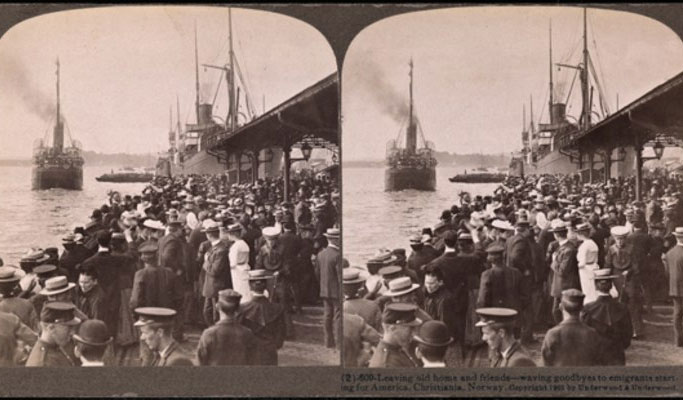/ People
Interview with Matthias Middell

Matthias Middell is Professor of History and Director of the Global and European Studies Institute at the University of Leipzig, Germany. He will stay as a Visiting Scholar at the Institute for European Global Studies. In this interview, he introduces his research project on migration history in Europe.
Welcome to the Institute for European Global Studies, Professor Middell! What kind of research project will you pursue during your stay in Basel?
In fact I’m currently working on two projects at the same time. The first one is a volume with sources and comments on migration history in Europe which is contracted with Steiner Verlag in Stuttgart and will be edited together with Madeleine Herren-Oesch as part of the series “Themenportal Europäische Geschichte” (ed. by Hannes Siegrist et al.). Besides the fact that this publication project would profit greatly from the possibility to communicate directly with the co-editor of the volume it also fits into the above mentioned logics: migration is the field par excellence where connections between Europe and the rest of the world have been observed but very often it has been conceptualized as a process driven by push and pull factors between two spaces seen like containers. Our concept, still to be developed in detail, instead looks at individual experience of circulation on the one hand and the role of institutions when it comes to the control of the spatial dimension in the migratory regimes.
The second project which I’m just starting with is a history of area studies. I try to answer the question how do societies organize their world perception under the global condition. Area studies all over Europe – from the old colonial metropolis to those parts seeing themselves sometimes as colonized - have their own particular histories - some are already well researched, others are still to discover. The major aim of my project is a sort of pan-European overview of how these academic communities and societies dealt with the non-European, which paradigms have they used and developed and what have been the main processes of their institutionalization. And of course, these processes have not happened only within national boxes but were connected through intense cultural transfers. Therefore, international congresses of all kinds of area studies people but also the use of this knowledge by international organizations will be an issue in the project.
Why did you choose this specific topic?
For the migration project it is evident that there is a connection to the currently ongoing debates about migrants coming to Europe and how we deal with them – as well as with our own history of migration towards others parts of the world. Since the book we are intended to produce will hopefully be used in classes at universities we hope to introduce more of the recent research results to academic discussion as well as to discourses beyond the so called ivory towers.
When it comes to the second project, there is an increasing discussion in all European societies about the repositioning towards global processes and everyone understands that there is a need for more knowledge about other parts of the world with which we interact more and more intensively. But neither are the preconditions to produce this knowledge the same all over Europe nor seem societies to be ready to invest to the same extent into the new and necessary knowledge basis. What I try to understand and to make understandable to the future reader are the differences and what may cause them.
How does the topic relate to European Global Studies?
As already said, both migration and world knowledge connect Europe and the rest of the world in different but similarly intense ways. What we will have to discuss is the place these topics have in a curriculum that addresses the need for more insight into the global processes we profit from and we are exposed to – I look very much forward to the opportunity for a dialogue with the people at the Institute in Basel, a dialogues that started already before I arrived here and will hopefully not end with my departure at the end of this fellowship.
What are you most excited about regarding your stay in Basel?
Basel is a wonderful city for people like me who need to walk or to bike in order to get new ideas. Of course, once you have left the office the city is full of occasions to forget about your project and to simply enter a museum, a restaurant or a café. So I will have to discipline myself not to fall too much in love with the city itself in order to stay working with exciting people at the Institute as well as at the History Department and other parts of the University.
Thank you for the interview, Professor Middell.
